First of all, colic is not a disease or a diagnosis it is more a term to describe various symptoms that indicate something wrong is going on in the digestion apparatus of the horse.
That being said there are many things that can go wrong and therefore many forms of ‘colic’.
If we get called out right now in the dead of winter we expect to see a form of gut problems we commonly name ‘winter colic’ or more correctly impaction colic.
What happens is that the ingested food gets stuck somewhere and hence stops moving through as it should, eventually forming a blockage. More food and gas builds up in front of this blockage and causes distention and possibly dislocation of the intestine. This of course causes considerable pain in the horse.
Here a simplified sketch of the horses intestines for better understanding, looking at it from the top of the horse down:
Impactions are often found in the pelvic flexure as there is a hairpin turn in the large colon, but it also can happen in other parts of the colon.
This is how the organs are arranged inside the horse as seen from the right:
And from the left, note again here the pelvic flexure:
Should you ever have us come out for a colic and see us perform a rectal exam, you probably have heard: “oh good, the spleen is right at the body wall” (good version) or “hmm, the spleen is dislocated..” (not so good version). What happened here is that the left colon slides up along the left body wall and gets hung up between the spleen and the kidney.
Again this is only one variation of what can happen, at this time of the year unfortunately the one we see most often. Needless to say this requires veterinary intervention but we want you to give you some pointers to how to try to avoid impaction colic.
1. Water! Keep your horse hydrated
Horses are naturally drinking less water in wintertime. Hence it is really important that you
-
provide your horse with drinking water, snow is NOT an alternative!
-
monitor your horses water intake
-
keep your water from freezing
-
keep your water from getting really cold (studies have shown that horses will drink more water if it is warmer (1) )
-
if you are using a bucket heater, make sure it is properly installed and insulated, otherwise your horse might get zapped every time he tries to drink
-
feed your horse her usual grain portion as a mash, preferably with warm water, you might even add a teaspoon of salt to encourage further drinking
-
provide your horse with drinking water, snow is NOT an alternative!
Well filled water trough with de-icer
2. Exercise! Keep him moving
During wintertime, especially here with our climate, horseback riding often comes to an abrupt halt. If you can’t ride try the following to keep your horse moving:
-
if it’s in a stall, give it frequent turn outs
-
if your horse is on pasture try feeding further away from his shelter and water, so that he has to walk to get his food
-
try to have a companion horse in the same turn out/pasture. Two horses can play, chase each other from food and keep moving that way
-
try spreading out the food, one flake here, the 2nd flake 100 metres up the pasture
-
go on a walk with your horse
-
try out skijoring 😉
Spread out hay…make them walk
3. Forage! Keep her gut moving
While horses can nibble here and there during the summer, in the winter hay and grain is their sole diet. We also tend to feed more to keep the horse warm, which is totally ok if you keep the following in mind:
-
feed smaller rations more often to keep the intestines working at all times
-
in order to stay warm horses need fibre not grain, do not raise your grain ration, raise your hay ration
-
if you want to feed extra grain consider a high fibre grain
-
if multiple feedings are not an option consider a slow feeder
-
if you need to switch hay during the winter months be extra careful to transition slow
4. Weather! Keep ahead of the storm
As crazy as it sounds but some horses are as sensitive to the weather as some humans are. So next time your migraine hits, consider to be extra observant with your horse, too. Be ahead of the game and prepared when the next super chill or Chinook is forecasted
5. Don’t panic but be informed
Being prepared and knowing what to do can take a lot of stress out of your and our life.
-
have your horse veterinarians’ phone number handy at all times
-
call us rather too early than too late
-
if your horse does not want to eat, DO NOT WAIT, call your veterinarian!
-
Monitor heart rate, bowel movement, water and food intake. You do know your horse best and if you think something is off, you are highly likely right
-
When have you wormed your horse last? Impaction colics due to worms DO happen.
-
Banamine paste is excellent to have at hand but if your horse is not eating: Do NOT WAIT on it

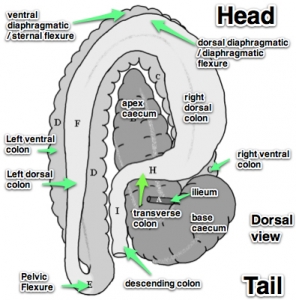
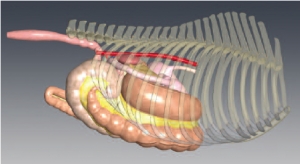
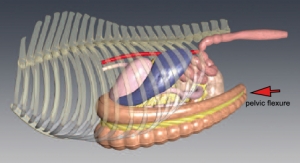
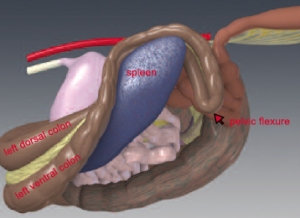
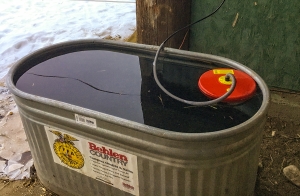
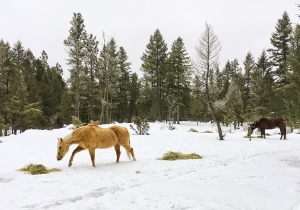
Recent Comments